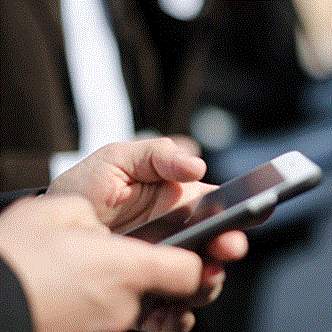
Text messages are a simple yet effective tool for treating high blood pressure, based on results of a recent study conducted in Cape Town, South Africa.
Published in the American Heart Association journal Circulation, this study tested the effects of a novel texting program in patients with high blood pressure. While the use of text messaging in health care is relatively new, current evidence is encouraging.
More than 6 billion people worldwide have access to mobile phones, making texting a simple and affordable way to interact with patients. Initial findings suggest that texting programs may help patients manage a number of conditions ranging from high blood pressure to HIV and AIDS. However, only a handful of studies exist related to texting and management of chronic conditions like high blood pressure.
To learn more, researchers tested the use of two texting programs at a health clinic in Cape Town, South Africa. In 2012, nearly 1,400 patients with high blood pressure enrolled in the study. All patients were prescribed medications for blood pressure management.
Roughly 900 patients were randomly assigned to a texting program, which provided medication reminders and weekly tips for blood pressure management. Among these patients, half received information-only text messages while the other half received interactive text messages. For interactive text messages, patients could respond to text messages when they had questions or needed to reschedule appointments. The remaining one-third of patients received standard care, which included usual information about blood pressure management.
Text message programs lasted one year, during which time researchers tracked participants’ blood pressure and health.
After one year, researchers found that blood pressure was significantly lower in both text message groups compared to those receiving usual care. By the end of the study, 65% of patients in the texting groups achieved their blood pressure goals, compared with 58% of patients receiving usual care. Patients receiving texts were also more likely to refill medications on time compared to individuals receiving usual care.
Findings are extremely encouraging, according to experts. Not only may texting programs help patients manage high blood pressure, it may be more effective than this study lets on. This study was conducted at a South African health clinic where both medication and visits were provided for free to patients. As experts explain, this design may have lessened the effects of texting since patients are more likely to adhere to treatment than in other settings. With future studies in more diverse health care settings, experts hope to better understand the benefits of texting for blood pressure management.